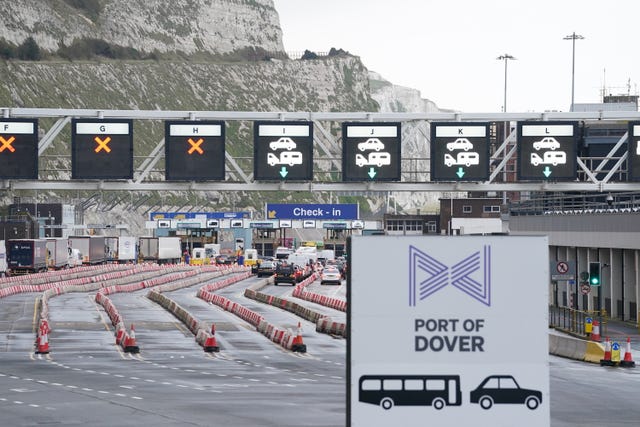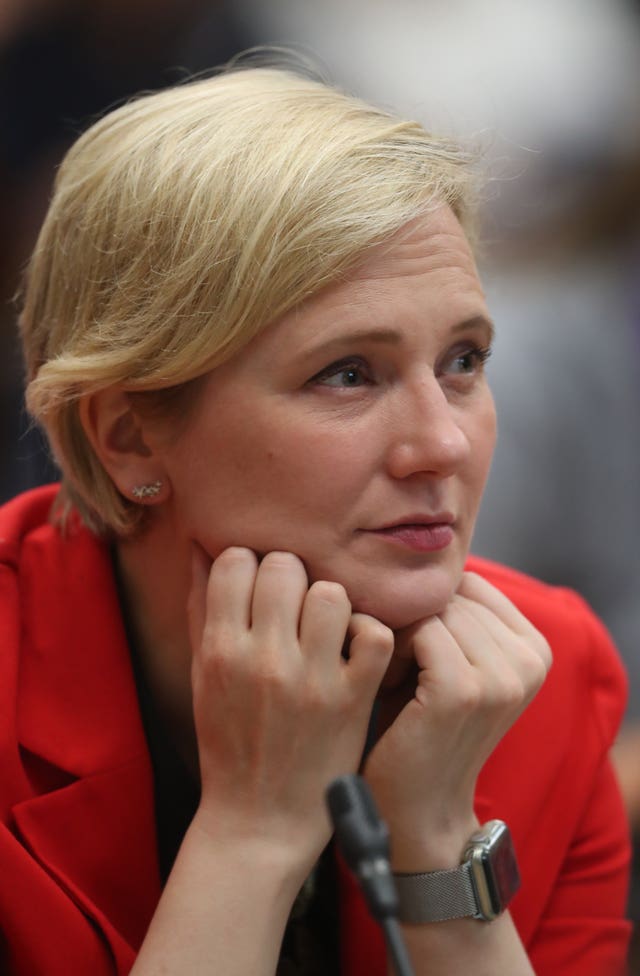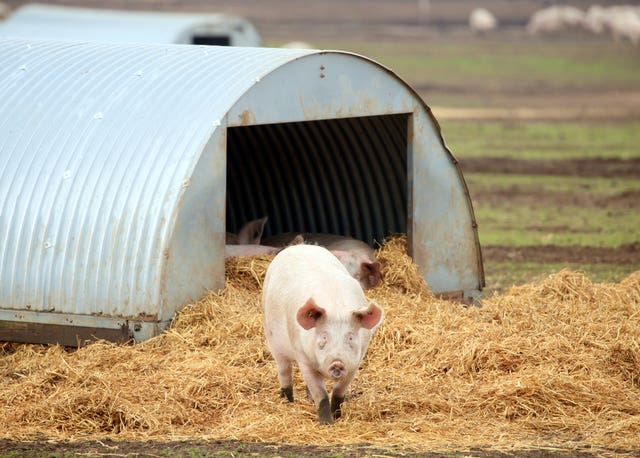
“Horrendous and chaotic” plans for border checks will see price increases on food passed onto consumers, ministers have been warned.
Goods from Britain have faced EU controls since it left the bloc’s single market at the start of 2021, with the UK Government introducing new requirements for animal and plant products coming from the other direction.
From 30 April, physical, documentary and identity checks at the border are scheduled to be required for medium-risk animal products, plants and plant products imported to the UK from the EU.
Checks would also be applied to high-risk food and feed of non-animal origin from the EU.

Labour MP Stella Creasy told the Commons: “Whether you supported or opposed Brexit nothing being proposed here is inevitable or unavoidable.
“Having left the EU we do need border controls, but what is being proposed won’t be controlled, it will be chaos.”
The MP for Walthamstow said the proposed measures amounted to a “Brexit border tax”.
She said: “From Wednesday for the first time, 2.7 million lorries will need to be stopped at Dover so their contents can be checked and another four million will require a health certificate for the animal products they carry.
“On top of this five million of them will have to pay a common user charge for the privilege of importing goods deemed medium or high risk – whether or not they’re inspected.
“The costs to business, which we know will be passed onto consumers, are horrendous and chaotic, these charges only being confirmed on April 18.

“The Government has admitted that this will cause inflation but they claim it’s only £300 million over 0.2% over three years, independent analysis shows it will be ten times that, or £8 a month on the average food shop.”
Ms Creasy added: “With 36 hours to go we need some straight answers. Our constituents can’t eat the paperwork this will create, nor afford the price rises it will increase.”
Defra Minister Sir Mark Spencer said Ms Creasy “either chooses not to understand what is happening or deliberately tries to inflame the situation, which I think will be a great benefit to the UK moving forward”.
He said: “For low risk goods there is a £10 charge for those products, capped at a maximum of five products, so the maximum you could have on a low-risk product lorry load would be £50.
“(Ms Creasy) is right in that we have calculated that over three years we think that will lead to about 0.2% on food inflation, if you compare that to the cost of an outbreak of foot and mouth disease, which cost this country £12 billion, not alone, the impact that would have on international trade and our reputation as a country, I think it is a small price to pay for making sure that we are safe and protected.”
The Government has previously said an outbreak of African Swine Fever would be a “fundamental threat to the viability” of the UK’s pig industry.

While Britain is free of African Swine Fever, it is widespread in some other parts of the world, including both EU and non–EU countries on the European Continent.
Shadow Defra minister Daniel Zeichner described the plans as a “mess”, and questioned if the checks would have the necessary funding to protect against diseases.
He said: “Here we are on April 29 with the new checks being introduced tomorrow and the businesses involved unclear on how the system’s supposed to operate.”
He added: “It’s baffling that in the battle against (African) Swine flu at Dover, the minister is taking away vital funding.”
Sir Mark replied: “If you tried to do something illegal then of course you will be picked up by border force, at the port of Dover via inspection and by intelligence led inspection.
“(Mr Zeichner) said there’s no money when actually we are in conversation with the port of Dover to resolve that.”
SNP Defra spokesperson Steven Bonnar, said the checks would be “highly damaging for industry and consumers”.
He said: “Does (Sir Mark) accept the significant disruption being faced is not only a symptom of the Government’s disastrous delivery of these checks but indeed of Brexit itself?”
Sir Mark said the Government had approached the issue in a “pragmatic” and “proportionate” way.
He said: “We’ve taken our time to get it right, and I don’t apologise for taking that time to make sure that the system we’re going to introduce tomorrow is proportionate and pragmatic, and we will listen to those companies that are going to be using those systems to make sure we get it right and it works.
“That’s why we’re ramping this up at a pace that is slow but steady, to make sure we get to the right place at the right time to keep this country safe from any disease.”


Comments: Our rules
We want our comments to be a lively and valuable part of our community - a place where readers can debate and engage with the most important local issues. The ability to comment on our stories is a privilege, not a right, however, and that privilege may be withdrawn if it is abused or misused.
Please report any comments that break our rules.
Read the rules hereLast Updated:
Report this comment Cancel